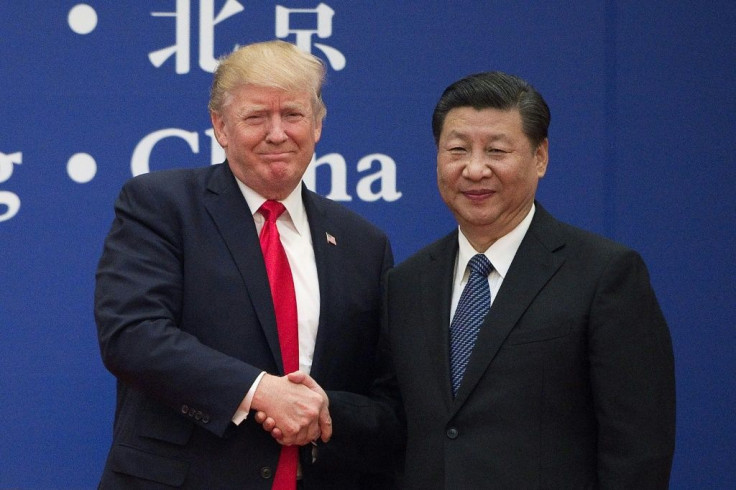White House: Scores Of Chinese Companies Tied To Military
KEY POINTS
- Draft list includes 89 Chinese companies
- It would severely limit U.S. suppliers from doing business
- China called this ‘unprovoked suppression’
The Trump administration wants to put restrictions on almost 100 companies that produce military goods.
White House officials drew up the list based on a Commerce Department ruling seven months ago that expanded the definition of a defense manufacturer to any business with any ties to a military product, including maintenance, Reuters reported.
The list includes the Aviation Industry Corporation of China and Commercial Aircraft Corp., a rival to airplane makers Boeing and Airbus.
Any U.S. supplier that wants to do business with a company on the list -- a "military end user" is the Commerce label -- would need a license, making U.S.-China trade relations even more strained. Applications for such licenses are typically denied, Reuters added in its exclusive report.
Chinese diplomat Zhao Lijian told Reuters that the list undermines trade norms and basic market principles. Beijing, he said, “firmly opposes the unprovoked suppression of Chinese companies by the United States.”
U.S. Commerce Department officials declined to comment.
The restrictions, if put in place, would build on an executive order signed Nov. 12 by Trump that prohibits U.S.companies from investing in 31vcompanies owned or controlled by the Chinese military.
Trump's directive has market index compliers FTSE Russel, JPMorgan Chase and MSCI examining their positions on companies the White House claims have ties to the Chinese military, the Wall Street Journal reported.
FTSE, a division of the London Stock Exchange, told the Journal it was gather feedback from its clients on the sanctions and the timing of the restrictions, which would force the FTSE to delist the companies.
The overall impact, however, would be modest because only a handful of listed companies fall under the executive order, the Journal reported.
Countering U.S. trade pressures, China is considering whether to join the Comprehensive and Progressive Agreement for Trans-Pacific Partnership, a multilateral trade pact.
Speaking at a regional economic forum last week, Chinese President Xi Jinping called on regional trade allies “to promote regional economic integration and establish an Asia-Pacific free trade zone at an early date."

© Copyright IBTimes 2025. All rights reserved.




















